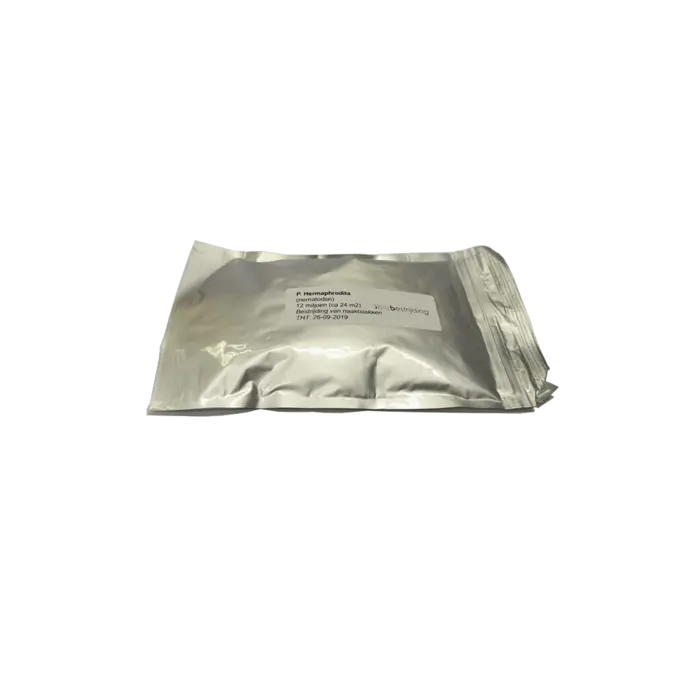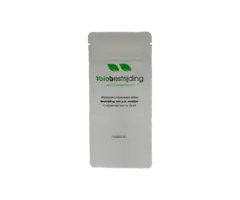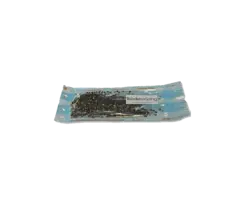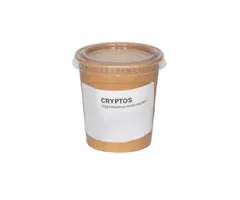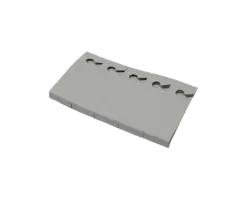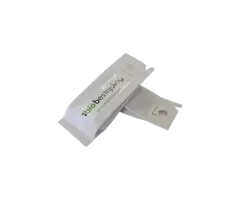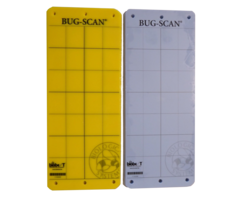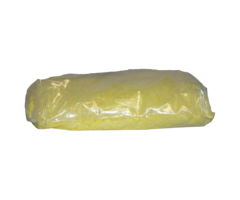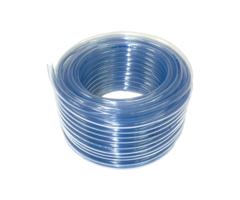BioBestrijding | Slug control with nematodes - Phasmarhabditis herm
BioBestrijding Nematodesagainst Snails
Attention! This product consists of live animals and is only available for order in the Netherlands or Belgium. If you order more than just Bio Fight, there will be an additional charge of € 7.95 due to dropshipping from the supplier.
The Phasmarhabditis hermaphrodita nematodes (nematodes) can be used as biological control agents of different slug species. They come in mineral powder ready to be mixed with water. With this mixture you can easily spray the soil with a watering can.
Nematodes are effective against
The Phasmarhabditis hermaphrodita nematodes are especially effective against slugs that live in the soil. In theory they also work against normal snails, but because normal snails live above ground, the nematodes do not come into contact with these snails. The nematodes are most effective in combating the gray slug, Deroceras reticulatum. This is the most widespread pest species in the world and is responsible for most agricultural and horticultural damage. In addition, the nematodes have also been proven to be effective against various other slugs. The nematodes penetrate the slugs and infect them with bacteria from their intestinal tract. This bacteria multiplies in the host and stops it from causing damage.
After 3 to 5 days, the snails will stop eating. The infected snails will die underground within 2 weeks after application. The affected snails are sometimes slightly swollen. For good control it is important to use the nematodes early when the snails are still young (and small). If the body weight of a snail is so large, it will be difficult for the nematodes to kill these large specimens. The use of the nematodes has an effect for about 6 weeks, provided the conditions for the nematodes are good (humidity, temperature, etc.). Below is an overview of the nudibranchs that can be used against nematodes:
- Arion ater (small specimens)
- Arion distinctus, Arion intermedius
- Arion lusitanicus (small specimens)
- Arion silvaticus
- Deroceras reticulatum (the gray slug)
- Deroceras panormitanum
- Leidyula floridana
- Tandonia budapestensis
- Tandonia sowerbyi
| 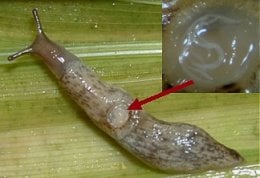 |
WHAT ARE NEMATODES?
Nematodes are roundworms (Nematodes) that occur naturally in the soil. They are very small (0.3 to 0.7 mm) and therefore invisible. They are harmless to humans, animals and plants.
HOW DOES PEST CONTROL WITH NEMATODES WORK?
Nematodes live in the soil and search for larvae and pupae of pest insects. They cannot fight adult specimens. There are many types of nematodes, each of which specifically targets a particular type of host. They enter their prey and infect it with a bacterium from their intestinal tract. This bacteria multiplies in the host and stops it from causing damage and eventually dies. Nematodes then feed on these same bacteria, which in turn cause them to multiply. A single insect larva can be the hotbed of thousands of nematodes. The pest insects are thus attacked by a true army of nematodes. As soon as the host is killed, the nematodes leave it and look for new hosts. As long as prey is present in the soil, the nematodes can maintain themselves and multiply.
BENEFITS OF NEMATODES
Completely organic and environmentally friendly. Completely harmless to children, pets, birds and wildlife. Perfectly safe to use around food crops. The snail retreats underground before dying, so you won't be left with an abundance of dead snails on the surface. Dead snails eaten by other creatures are non-toxic. Impossible to apply too much. Works well in wet weather; exactly the conditions in which slugs are most active and destructive. Can be used with most garden chemicals - including fertilizers - although it is best to apply them at different times. You do not introduce foreign organisms into your garden; simply refill the good microbes that are already there. You get the same benefits that commercial growers have been using for over twenty years
TEMPERATURE AND SURROUNDINGS
The nematodes can be used at a soil temperature between 4 and 34 degrees. It is important that the nematodes are applied to a moist soil that should not dry out for several weeks for optimal effect. Regular spraying in dry weather is therefore a must. During or just before a rain shower is an ideal time to release the nematodes. Note: do not turn off during night frost.
EFFORT
Exactly when you need to release the nematodes depends on the development phase of the host in question. Ideally, the host is in a sensitive state so that the nematodes can easily penetrate prey. We recommend about 500,000 nematodes per m2 for a minor infection. With a larger infection you can increase this number to 1 million nematodes per m2. You can repeat this bet after 2-3 weeks. It is expanded as follows for soil application:
- Allow the nematodes to reach room temperature at least half an hour before deployment.
- Take a watering can with an opening of at least 0.5 mm. Remove any strainers or closures so that the water comes out freely.
- Take a bucket and fill it with 5 to 10 liters of lukewarm water (15-20 degrees). Throw the whole pack of nematode powder into the bucket and stir it well so that no lumps are visible anymore.
- Then let the mixture soak for 5 minutes. After this stir well again.
- Advice is 500.000 nematodes per m2. You must dilute the mixture of 10 liters so that you spray the right number of nematodes per m2.
- Spray the mixture evenly over the soil. Remember to keep the soil moist in the first 2 weeks.
- After the treatment, spray the soil well so that any above ground nematodes still have the opportunity to enter the soil.
SHELF LIFE
We recommend to use the nematodes as soon as possible after receipt. If you want to store them longer you can keep them in a refrigerator (2-8 degrees). On the packaging is the expiry date. Never freeze!
Please note! If you order more than just Bio Fighting, there will be an extra charge of € 7.95 because of dropshipping from the supplier.

